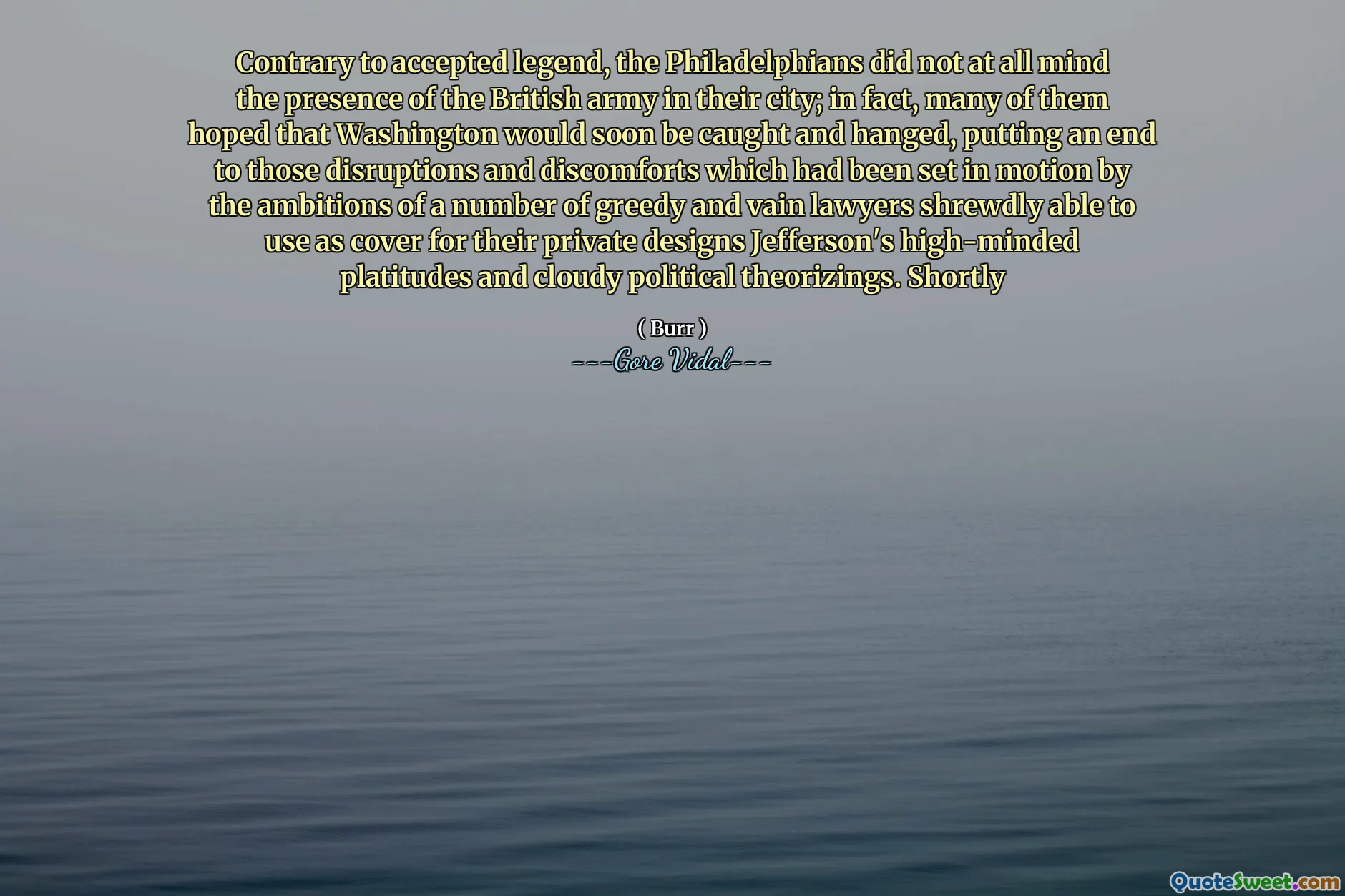
Contrary to accepted legend, the Philadelphians did not at all mind the presence of the British army in their city; in fact, many of them hoped that Washington would soon be caught and hanged, putting an end to those disruptions and discomforts which had been set in motion by the ambitions of a number of greedy and vain lawyers shrewdly able to use as cover for their private designs Jefferson's high-minded platitudes and cloudy political theorizings. Shortly
The narrative challenges the common belief that the residents of Philadelphia resented the British army's presence during the American Revolutionary War. Instead, many Philadelphians viewed the British as a stabilizing force and were actually longing for a swift resolution to the conflict, even hoping for the downfall of George Washington. This sentiment suggests that the city's populace was more concerned about the chaos surrounding the war than the ideals of independence touted by revolutionary leaders.
Additionally, the text criticizes certain individuals, particularly lawyers, who exploited the revolutionary rhetoric for personal gain. These figures, portrayed as self-serving and ambitious, manipulated Jefferson's philosophical ideas to mask their own ambitions, thereby complicating the motivations behind the revolutionary movement. The author's perspective highlights a disconnect between the lofty ideals of revolution and the pragmatic realities faced by ordinary citizens, revealing a multifaceted view of the era's complexities.











